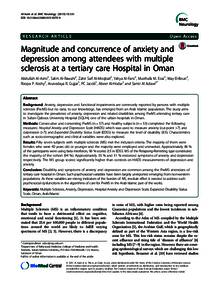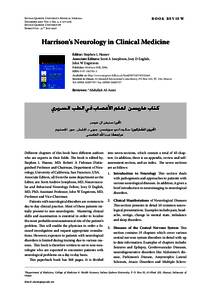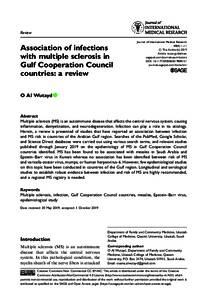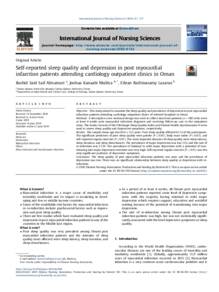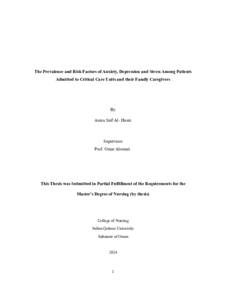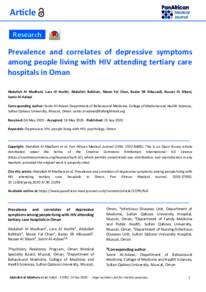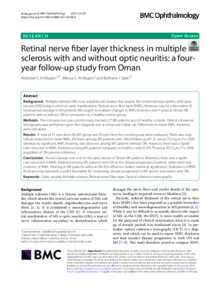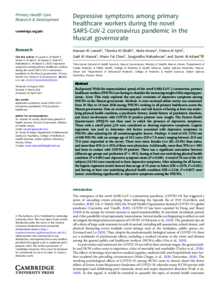Document
Magnitude and concurrence of anxiety and depression among attendees with multiple sclerosis at a tertiary care Hospital in Oman.
Identifier
DOI: 10.1186/s12883-015-0370-9
Contributors
Al-Rawahi, Salim., Author
Al-Moqbali, Zahir Saif., Author
Al-Farsi, Yahya., Author
Essa, Musthafa M., Author
El-Bouriyah, May., Author
Koshy, Roopa P., Author
Gujjar, Arunodaya R., Author
Jacob, PC., Author
Al-Hodar, Abeer., Author
Al-Adawi, Samir., Author
Publisher
BioMed Central.
Gregorian
2015-08
Language
English
English abstract
Background: Anxiety, depression and functional impairments are commonly reported by persons with multiple sclerosis (PwMS) but no data, to our knowledge, has emerged from an Arab Islamic population. The study aims to investigate the prevalence of anxiety, depression and related disabilities among PwMS attending tertiary care in Sultan Qaboos University Hospital (SQUH), one of the urban hospitals in Oman. Methods: Consecutive and consenting PwMS (n = 57) and healthy subjects (n = 53) completed the following measures: Hospital Anxiety and Depression Scale (HADS) which was used to measure anxiety (cut-point >7) and depression (>7); and Expanded Disability Status Scale (EDSS) to measure the level of disability (≥5). Characteristics such as socio-demographic and clinical variables were also explored. Results: Fifty seven subjects with multiple sclerosis (MS) met the inclusion criteria. The majority of them were females who were 40years old or younger and the majority were employed and unmarried. Approximately 86% of the participants were using beta interferon, 96% scored ≥5 in EDSS. MS of the Relapsing-Remitting type constituted the majority of the cohort (94%). Approximately 35% and 51% endorsed symptoms of anxiety and depression respectively. The MS group scored significantly higher than controls on HADS measurements of depression and anxiety. Conclusion: Disability and symptoms of anxiety and depression are common among the PwMS attendees of tertiary care hospital in Oman. Such psychosocial variables have been largely unreported emerging from non-western populations. As these variables are strong indicators of the burden of MS, resolute effort is needed to address such psychosocial dysfunctions in the algorithms of care for PwMS in the Arab Islamic part of the world.
Member of
ISSN
1471-2377
Resource URL
Category
Journal articles

